That Hannibal survived as long as it did is a minor miracle. A baroque opera of a TV show packed with elaborate plot twists, psychological games, gore elevated to the level of art and pitch-black humour, Hannibal never should have been on network television. Perhaps its greatest tragedy is that NBC picked it up without truly knowing what they were going to get; a crime procedural based on an iconic property must have seemed a no brainer. Of course that was not accounting for the ways in which creator Bryan Fuller managed to take well-trodden material to stunning new heights, subverting the text while paying loving tribute to it and all the while forging a path all its own. Hannibal was unlike anything else on TV and even as the ratings declined it stuck to its guns, getting weirder and more beautiful by the year and in the process consolidating a fervent cult following that would endure even after the series was cut down in its prime.
To passionate Hannibal fans its cancellation halfway through season three was an outrage; there was, after all, still so much left to explore. But then Hannibal surprised us again with a perfect finale. You’d be hard pressed to think of a more fitting goodbye to these characters.
But, of course, satisfaction was always tempered by a niggling awareness that this was not supposed to be the end, that Fuller still had several seasons of story left to tell and that, of course, Hannibal had yet to even reach the events of The Silence Of The Lambs, the most famous story featuring the character. And while fans generally seemed happy with the finale, Fuller and the rest of his team have kept the door open for the last two years, giving the sense that there is a strong likelihood of the show’s resurrection. Vague hope became genuine excitement earlier this year when a Twitter post from Fuller suggested that discussions on season four had finally begun in earnest. With the success of American Gods presumably giving Fuller more clout as well as (hopefully) an in with Starz, a network who have long since proven they don’t mind dabbling in the weird, the future of Hannibal is looking bright.
With that in mind, what could we expect from another chapter of the series?
The continuing corruption of Will Graham
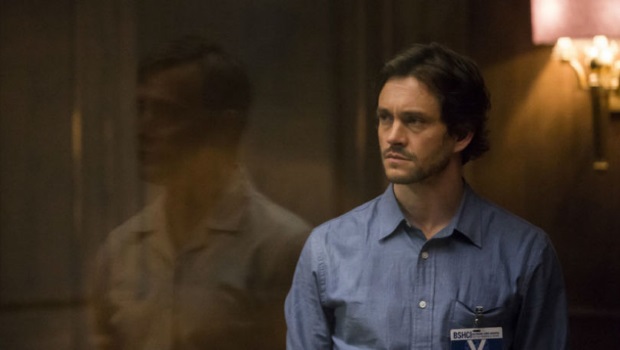
The first three seasons of Hannibal were essentially built around Hannibal Lecter’s attempts to turn Will Graham into a monster like himself, the question always being whether Will truly harboured latent psychopathic tendencies or was just so good at adopting the viewpoints of those who did that the lines had become blurred. Over the course of the show the answer to this question became muddier and muddier as the elaborate games between the two characters escalated and Will perpetually feinted in either direction to throw Hannibal off the scent of his never entirely clear motives. It made for fascinating television and the experience of watching Hannibal often felt like being perched on a knife’s edge; just what kind of person was Will Graham?
Ambiguity was a big part of the thrill but it seemed to harden into something approaching certainty as Will helped murder Dolarhyde in the finale and admitted it was ‘beautiful’ before pulling Hannibal off the edge of a cliff with him. I’ve always read this moment as the one where Will finally admits to the darkness inside him and decides to end it all rather than continue to live with certain knowledge of what his is capable of. This immediately creates an interesting storytelling avenue in which Will’s survival means he must confront what he now knows he is.
But, in true Hannibal style, even this epiphany is shot through with ambiguity. After all, killing Dolarhyde was ultimately self defence against a violent murderer, and any pleasure Will took in the killing can be seen as incidental in the same way that his mutilation of Randall Tier’s body in season two, however he felt about it, was incidental to the grander scheme of entrapping Hannibal. Will has long since proved that he can keep his darker side at bay (he managed it for three years before Hannibal used Dolarhyde to re-enter his life) and even if he can’t, it’s not like the act of killing has to always be one of evil in this universe. Somebody like Jack Crawford would be well placed to point out to Will that however he feels about what happened with Dolarhyde, the bottom line is that he took out a psychopath who was murdering whole families.
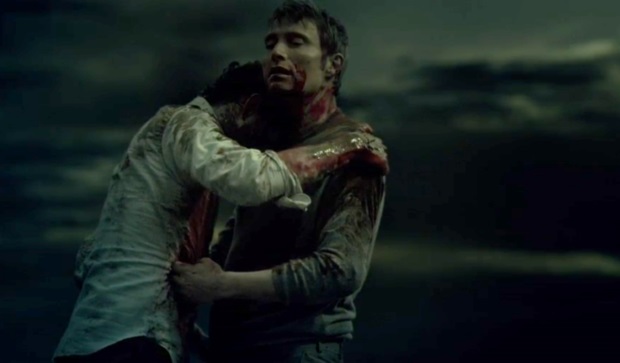
But you can bet Hannibal will play on whatever torment Will feels. Fuller has said that season four would explore a portion of the novel Hannibal that had yet to be adapted in any form, and that could only seem to refer to the ending, in which Hannibal brainwashes Clarice Starling and the two of them run away to Buenos Aires. Assuming some variation of this is what we can expect to see play out between Hannibal and Will, with a deleted scene from the season three finale screenplay suggesting Jack Crawford would be in close pursuit, the next chapter of the story would presumably focus on the battle for Will Graham’s mind and soul, removed from the context of having to solve crimes or catch Hannibal.
But this show would be nothing without its intricate manipulations and grand schemes, and so my suspicion is that Will would ultimately find a way to break free of Hannibal again, albeit at a greater cost than ever before. Perhaps it involves allowing Hannibal to enact his lingering promise to Alanna Bloom, in the process putting Chilton in charge of the Baltimore Hospital for the Criminally Insane and leaving Will the broken alcoholic that The Silence Of The Lambs novel alludes to him being. In Hannibal no deed ever goes unpunished, and any (even temporary) defeat of Hannibal Lecter on the part of Will Graham or Jack Crawford would doubtless come at a terrible cost, a cost that would set up the next part of the story.
The Silence Of The Lambs
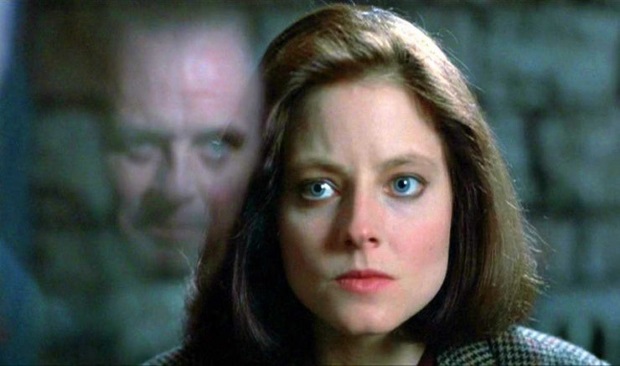
Much has been made of the ongoing rights issues that halted Hannibal from adapting any part of Silence Of The Lambs, leaving Fuller to come up with analogue characters to fulfil the role of any introduced in that particular story. In interviews he has always been optimistic about those issues one day being resolved, and with that in mind, what might a Hannibal adaptation of Silence Of The Lambs look like?
It’s tricky territory; for my money Silence has already been perfectly adapted, and it would be hard for any new take on the material to pack the same punch. Hannibal, however, has form in this area; even a fairly faithful adaptation of Red Dragon took on new meaning and depth due to the history of these versions of the characters, and Silence would take advantage of that same history, now with four seasons of context behind it (depending on if and when the plot gets adapted).
Of course, the question here is how much Will Graham would factor in proceedings, given he does not appear in the novels after Red Dragon. This, I think, is where Fuller’s ‘fan fiction’ approach to the literature would really shine; imagine Clarice Starling, having just met Hannibal behind bars for the first time, tracking down the one person who knows him better than any to answer her questions. Maybe Will is, like the book suggests, ‘a drunk in Florida with a face that’s hard to look at’ or maybe the show will devise some other fate for him. Whatever the case, it’s hard not to get excited by the thought of a Clarice Starling/Will Graham interaction. Will the fear of another FBI agent being destroyed the way he was force Will back into Hannibal’s orbit? And how will Hannibal react to having two playthings?
Beyond
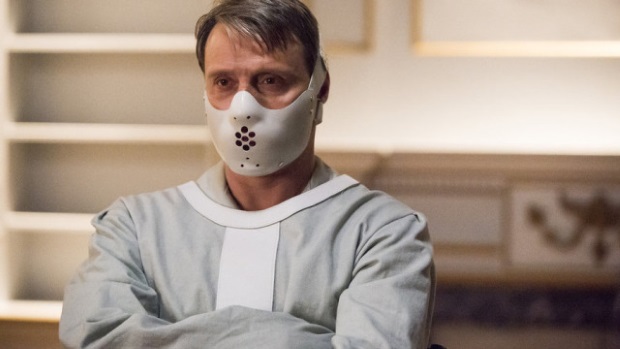
Early on in the run of Hannibal, Fuller suggested the long term ending he sees might come down to a faceoff between Will, Hannibal and Clarice. This always seemed like the logical next step for the story after the ending of the novel Hannibal, with Lecter’s former adversary coming out of retirement to hunt down the man who ruined his life, perhaps at the behest of an ailing Jack Crawford. Whether Thomas Harris has another Hannibal novel in him is unknown (and doubtful), but a television adaptation would be well placed to bring the story to this logical conclusion, one we’re yet to see in any medium.
Because here’s the thing; from its earliest iterations the Hannibal Lecter saga has always been about love more than anything else. The love between Francis Dolarhyde and Reba McClane, the love between Clarice and Jack, Clarice and Hannibal, Hannibal and Lady Murasaki, and of course, in the TV show, Will and Hannibal. And seen through this prism the often-misunderstood ending of the novel Hannibal takes on new significance.
The issue with Will Graham has always been that he does not trust himself, that he’s scared too much exposure to the darkness will lead to him embracing it. The TV show has used his relationship with Hannibal to explore this beautifully, and it’s here that Hannibal and Clarice’s connection could take on a new significance. At the end of the book Hannibal tries to brainwash Clarice into essentially becoming his dead sister Mischa, but Clarice resists; her sense of self is too strong. Instead she offers herself and Hannibal accepts.
The book leaves it ambiguous as to how much Clarice knows what she is doing. The Clarice Starling who once said “the world will not be this way within the reach of my arm” would never run away with a serial killer, but the bulk of the novel Hannibal is about her being perpetually let down by all the things she believed in; the law, the FBI, Jack Crawford, human decency. In the end, with a bit of conditioning weakening her defences, the acceptance of Hannibal Lecter starts to look far more appealing than the rejection of the morality she dedicated her life to upholding.
It is tragic. However it should not be read with the assumption that Clarice loses sight of her identity. Even once with Hannibal she sends a letter to Ardelia Mapp telling her she will be okay and she takes time to mourn the death of Jack Crawford. Clarice did not have some inner darkness she was avoiding succumbing to. Again, her sense of self endures, meaning she can co-exist with Hannibal without becoming him. Unlike Will Graham, she can observe without participating. Acceptance of a partner is the crux of real love, not reshaping yourself in their image. And wouldn’t this fact alone delight Dr Lecter to no end?
Now drop Will Graham into this and it becomes the story of a spurned lover realising the one person who ever understood him has moved on. What does the man who has lost everything do in this scenario? If the ending of Silence Of The Lambs is tweaked slightly to result in Clarice escaping with Hannibal then we’re well positioned to launch into a storyline like this without repeating anything we’ve already seen (as the bulk of the novel Hannibal was already covered in season three).
Of course, it’s possible that all of this is wrong. This is pure speculation based on interviews and what we know of the characters so far, and speculation is almost always more fun than it is correct.
Will it happen?
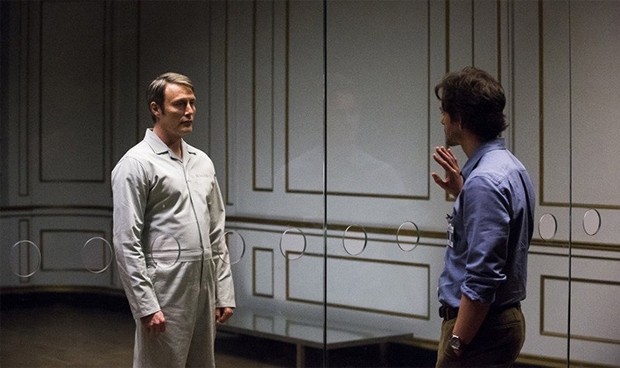
Speculation, in the end, becomes moot if what is being speculated about doesn’t come to pass. While it’s true that we’ve only just entered the period of time in which, due to various legalities, negotiations on more Hannibal are even possible, it’s hard to gauge whether those possibilities will ever become more than that. Bryan Fuller, Hugh Dancy, Mads Mikkelsen, Lawrence Fishburne and the rest are all rightly in high demand and reconvening them in the near future may well prove to be a tall order. All of them have expressed a desire to return, which at least means that one major hurdle is passed, but there are so many other factors. Availability, funding, interest from networks and the rest. Rights issues seem to be an ongoing curse for Hannibal, with Netflix unable to pick it up due to the streaming rights residing elsewhere and those who own those rights not wanting to produce another season. There has also been talk of a movie, but all involved seem to agree that television is the best format for this story, whether it be another full season or a miniseries.
Ultimately the demand from the fans and the desire from the creatives are there, and as long as that is the case the conversations will remain open. The fact that we got three seasons of this increasingly brilliant, bizarre, beautiful show is cause for celebration, and if the prospect of there being more seems too much to hope for, at least there are justifiable grounds for those hopes. Hannibal was one of the best shows of the last few years, a singular beast that carved a particular place in the hearts of its many passionate fans. When all is said and done it deserves to finish telling its story, whatever shape that story might take.

